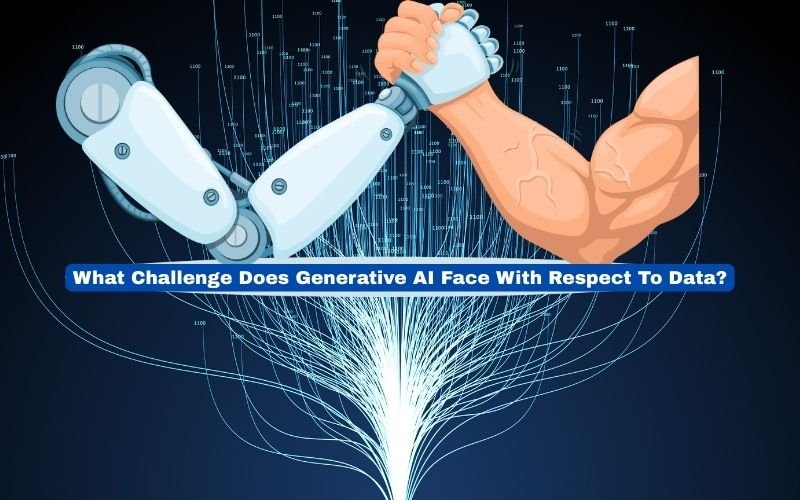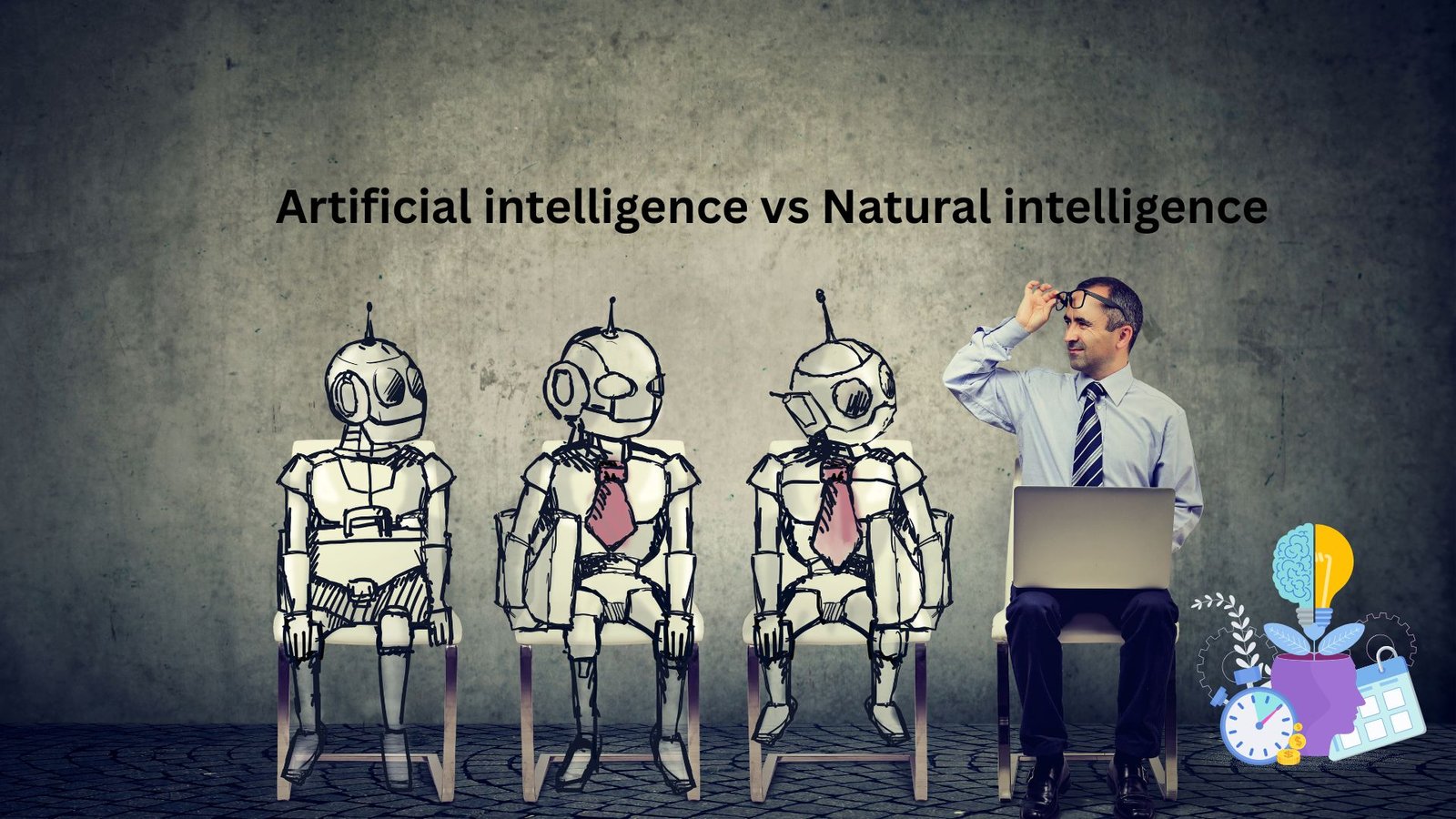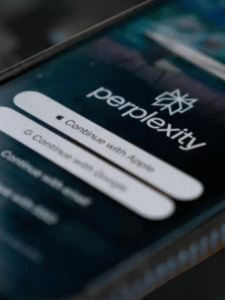What Challenge Does Generative AI Face With Respect To Data?
Understanding Generative AI and Its Relationship to Data
As texts, images, and songs are created, generative AI is changing the industry. Challenges to the performance of generative AI include the risks associated with the adequacy, variety, and quality of available data.
Without adequate and rich data sets, generative AI models cannot perform accurately or ethically. Furthermore, companies seeking advice on generative AI need to clarify these limitations before implementation.

The Main Problems Associated with Data in Generative AI
1. Insufficient Data Quality
Lack of homogeneity and redundancy in data sets is one of the biggest challenges for generative AI. Poor data quality leads to irrelevant, distorted, or erroneous results.
Companies must therefore carefully prepare and pre-process their data sets. Responsible processing of data sets without compromising quality can be ensured by working with generative AI consulting companies.
A look at the importance of data quality in AI systems provides further insight into the importance of data quality in AI.
2. Data Bias and Risk of Ethical Concerns
This leads to the most serious problem—discrimination bias. The reproduction of baseline information is facilitated by the unintentional duplication and steep amplification of discrimination bias during the training of generative AI, and thus the opportunity to reinforce this acquired bias.
As a result, this can lead to reputational damage and legal complications for organizations. Engaging a trusted consulting firm helps to check and mitigate these biases.
Visual stimulus: A diagram depicting instances of AI bias.
Alt text: “Incidents of AI bias in operational practice”
3. Data Protection and Compliance Issues
These laws impose strict compliance requirements for the handling of personal and sensitive data, e.g., GDPR and CCPA. If these regulations are not complied with, companies face heavy fines.
Effective anonymization and protected data storage methods are therefore essential. Working with professional generative AI consultants makes it easier to clarify these legal issues as they provide important insights.
Internal link: [Link to your article “How AI Complies with the GDPR and CCPA”]
4. Access to Proprietary Data
While there are many data sets out there, access to truly valuable, high-quality, and proprietary data is limited. These datasets are usually accessible through license agreements or partnerships that provide strategic value.
That’s why many companies rely on consulting firms that specialize in creating or modifying data for specific models.
External link: [Stanford’s report on the data shortage for AI training]
Why Generative AI Consulting Is Important to Solve Data Problems
Choosing generative AI consulting significantly increases a project’s chances of success. Companies and independent consultants can provide customized services in the areas of dataset curation, bias audits, compliance, and even ethical marketing.
They also offer insights into specific areas that ensure generative AI models are working correctly and responsibly. Without professional oversight, even well-funded AI companies can stumble across problematic, hidden data.
Visual stimulus: Flowchart on AI-related data obstacles showing how consulting helps with data challenges.
Alt text: “AI Generative Consulting Performance Overview”
Data Quality and Generative AI Results
Generative AI systems are always influenced by data quality, and the adage “GIGO”—garbage in, garbage out—applies even when sophisticated algorithms are used. If the input data is of low quality or irrelevant, the results are prone to hallucinations, unethical behavior, and user disappointment.
Therefore, excellent quality data must be maintained at all times, which means that this is a strategic imperative and not just a technical matter. Working with generative AI consultancies helps to ensure reliable evaluation and iterative improvement of data.
Internal link: [Link to “The most effective approaches to training ethical generative AI models”]
A Look into the Future: Solving the Generative AI Data Problem
1. Creation of Synthetic Data
One of the most effective approaches to solving problems is the creation of synthetic data. To ensure privacy and avoid bias, AI can be trained by creating realistic artificial data sets.
Many consulting firms are now focusing on creating application-specific synthetic datasets that are developed for specific use cases.
Visual stimulus: Working diagram showing how synthetic data is created.
Alt text: “Synthetic data workflow for generative AI”
2. AI That Prioritizes Privacy and Federated Learning
This is another lesson in innovation, as federated learning makes it possible to train models on different devices without transmitting sensitive data. Generative AI model consulting services use these technologies because they mitigate risk while maintaining model accuracy.
External link: [Introduction to Federated Learning from Google]
Final, Connecting Thoughts: Solving Data Problems with Tactical Support
As mentioned above, generative AI offers tremendous opportunities, but there are undeniable data-based challenges. Obstacles that could undermine even the best AI plans include bias, quality, privacy, and data access.
For companies that want to use generative AI, the availability of reliable data is essential. Working with a proactive generative AI consultancy enables the use of AI that is robust, ethical, and resilient to future change.
Those who are prepared to master the data dimension will be able to steer the coming waves of innovation in AI.
/galaxy-s26-gets-smarter-samsung-taps-perplexity-ai-for-future-phones/
/nintendo-switch-2-release-date-price-and-features/
/playstation-state-of-play-june-2025-what-you-should-prepare-for/
/nintendo-switch-2-at-walmart-here-is-how-you-can-pre-order-it/
/apple-ios-26-expected-features-after-the-upcoming-announcement/



















Post Comment